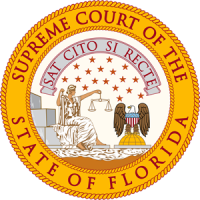The U.S. Court of Appeals for the Tenth Circuit recently affirmed summary judgment in favor of an insurance company, holding that the insurer had no duty to defend and indemnify its insured in a lawsuit alleging that the provider’s telemarketing phone calls violated several federal and state laws, because statutory damages and injunctive relief under the Telephone Consumer Protection Act (TCPA) are uninsurable penalties — not damages — under Colorado law and the insurance policies at issue. A copy of the opinion in ACE American Insurance Company v. Dish Network is available at: Link to Opinion. The federal government and five…
Posts published in “Insurance Law”
In a case involving a claim on a fire insurance policy relating to damaged real estate, the U.S. Court of Appeals for the Sixth Circuit recently held that the insurance policy’s two-year limitations provision did not apply to a claim brought under section 500.2006(4) of Michigan Complied Laws because it was not a claim “under the policy,” and instead Michigan’s “catch-all” six-year period of limitations applied. In addition, and contrary to two previous unpublished rulings, the Sixth Circuit determined that a private cause of action exists under section 500.2006(4) Accordingly, the Sixth Circuit determined that the insured’s claim was timely,…
The U.S. Court of Appeals for the Seventh Circuit recently affirmed the dismissal of a bank’s lawsuit against its insurer for breach of contract and bad faith denial of coverage, holding that the insurance policy’s exclusion for any claim based upon or arising from fees or charges applied to the facts alleged. The bank argued that the primary sources of the claims against it concerned the bank’s policies and procedures, which were not the subject of a policy exclusion. However, the Court held the insurer was not required to defend or indemnify the bank for the underlying $24 million settlement…
The U.S. Court of Appeals for the Ninth Circuit recently held that a liability insurance policy that broadly excluded coverage for invasion of privacy claims also excluded coverage for claims for violations of the federal Telephone Consumer Protection Act. A copy of the opinion in L.A. Lakers v. Federal Ins. Co. is available at: Link to Opinion. In 2012, a class action complaint was filed against the Los Angeles Lakers for allegedly sending text messages using an automatic telephone dialing system in violation of the TCPA, 47 U.S.C. § 227, et seq. The Lakers asked their insurer to defend them against…
The U.S. District Court for the Northern District of Illinois recently held that a title insurer may exclude coverage under the exception for defects “created, suffered, assumed, or agreed to by the insured claimant” without intentional or wrongful conduct by the insured. In so ruling, the Court also held that the Illinois statute for bad faith denial of coverage by insurers did not apply to title insurers. A copy of the opinion in Bank of America, NA v. Chicago Title Insurance Company is available at: Link to Opinion. In 2007, a developer sought to purchase real estate in Yorkville, Illinois, to…
The U.S. Court of Appeals for the Third Circuit recently held that a businessowners insurance policy did not cover a class action judgment that arose out of unsolicited advertisement communications in violation of the federal Telephone Consumer Protection Act. A copy of the opinion in Auto-Owners Insurance Company v. Stevens & Ricci Inc. is available at: Link to Opinion. A business was solicited by an advertiser who claimed to have a fax advertising program that complied with the TCPA, 47 U.S.C. § 227. The business allowed the advertiser to fax thousands of advertisements to potential customers on its behalf. Six years later, a…
The Supreme Court of California recently held that, in determining whether punitive damages awards are within constitutional limits, attorney’s fees may be included in the calculation of the ratio of punitive to compensatory damages, regardless of whether the fees are awarded by the trier of fact as part of its verdict or are determined by the trial court after the verdict has been rendered. A copy of the opinion in Nickerson v. Stonebridge Life Insurance Company is available at: Link to Opinion. The plaintiff suffered a broken leg and was taken to a veterans hospital. He experienced several complications from his…
The U.S. Court of Appeals for the Seventh Circuit recently affirmed a district court’s judgment that a lender did not owe the borrower a fiduciary duty to use the payout from a homeowners’ insurance policy to pay down the loan instead of repair the house, but reversed the dismissal of the borrower’s breach of contract claim. A copy of the opinion is available at: Link to Opinion. The borrower purchased his home in 2005 with a $100,500 mortgage loan. The home was seriously damaged by a fire five years later. The borrower filed an insurance claim, and the insurer paid…
The Court of Appeal of the State of California, First District, recently reversed a judgment confirming an appraisal award in an action for damages to an apartment building arising from a fire, as the appraisal panel incorrectly assigned a loss value to all items submitted to it for consideration by the insured, regardless of whether the item was damaged or ever existed. A copy of the opinion is available at: Link to Opinion. The insured filed a hazard insurance claim for an apartment building as a result of a fire. The insurer investigated the claim and issued initial payment of…
Five of the federal banking regulatory agencies (FDIC, FRB, OCC, FCA, and NCUA) recently issued a joint final flood insurance rule, which among other things: Requires escrowing of flood insurance payments for non-exempt loans secured by residential improved real estate or mobile homes that are made, increased, extended or renewed on or after Jan. 1, 2016; Requires that borrowers be given the option to escrow flood insurance premiums and fees, as to residential loans extant as of Jan. 1, 2016; Clarifies that regulated lending institutions and servicers acting on their behalf are allowed to charge for lender-placed flood insurance; and States…
The Supreme Court of Florida recently held that first-party insurer bad faith is not a ‘willful tort,’ and that, as a government entity that enjoys broad statutory immunity from suit, Citizens Property Insurance Corporation (“Citizens”) is consequentially immune from statutory first-party bad faith causes of action. In sum, the Supreme Court determined that the Florida Legislature, when it created Citizens as a property ‘insurer of last resort,’ did not expressly waive Citizens’ statutory immunity from first-party lawsuits arising under Fla. Stat. § 624.155(1), more commonly known as statutory bad faith actions. Florida does not and has never recognized a common…







